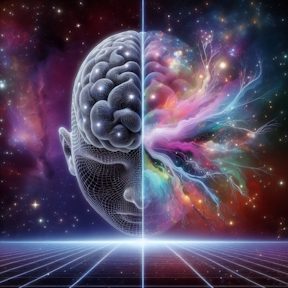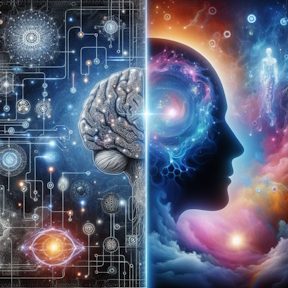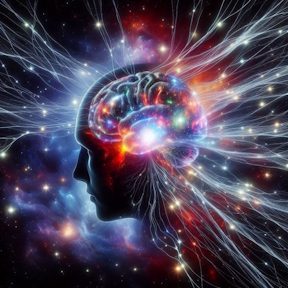Non-Physicalist Perspectives
Non-physicalists argue that consciousness cannot be reduced to physical processes, positing that it represents a fundamental aspect of reality. This school encompasses a variety of views, including dualism, panpsychism, and idealism.
Dualism: Following René Descartes’ philosophy, dualists like David Chalmers contend that consciousness and the physical brain exist as separate but interacting entities. They argue that subjective experience requires an explanation beyond materialism.
Panpsychism: Advocates such as Philip Goff propose that consciousness is a basic property of the universe, inherent even in elementary particles. This perspective shifts the focus from “how” consciousness arises to “where” it exists.
Idealism: Philosophers like Bernardo Kastrup suggest that consciousness is the fundamental reality, with the material world emerging as a construct of conscious experience.
Non-physicalist theories offer compelling insights, but they often struggle with empirical validation. Critics question their testability and practical implications for scientific research.
The Ongoing Debate
The hard problem of consciousness remains a polarizing topic in philosophy and science. While physicalists emphasize the promise of empirical research, non-physicalists challenge the paradigm’s adequacy in capturing subjective reality. Bridging this divide requires interdisciplinary collaboration, combining neuroscience, philosophy, and computational modeling to illuminate the mysteries of consciousness.
Concluding Thoughts
In summary, the hard problem of consciousness underscores the profound complexity of understanding our subjective experiences. Whether the solution lies in the physicalist camp, the non-physicalist domain, or an entirely new framework, the quest continues to inspire and challenge human understanding.
Bibliography
- Chalmers, David J. *The Conscious Mind: In Search of a Fundamental Theory*. Oxford University Press, 1996.
- Tononi, Giulio. “Consciousness as Integrated Information: A Provisional Manifesto.” *Biological Bulletin*, 2008.
- Goff, Philip. *Galileo’s Error: Foundations for a New Science of Consciousness*. Pantheon Books, 2019.
- Clark, Andy. *Surfing Uncertainty: Prediction, Action, and the Embodied Mind*. Oxford University Press, 2015.
- Kastrup, Bernardo. *The Idea of the World: A Multi-Disciplinary Argument for the Mental Nature of Reality*. Iff Books, 2019.



